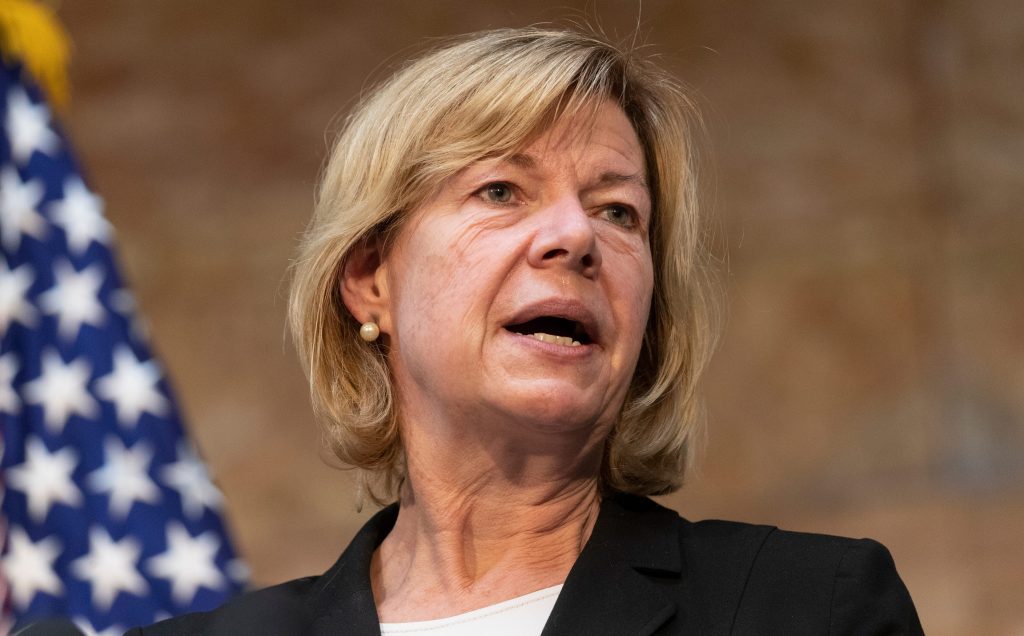A Republican-funded ad against Sen. Tammy Baldwin (D-WI) was taken down for making false claims about the senator’s healthcare record. Baldwin is running for reelection this year against Republican Eric Hovde.
The ad said Baldwin had reduced Medicare funding and used it for electric vehicles.
The ad probably referred to when Baldwin voted for the Inflation Reduction Act, which reduced the cost of insulin and other drugs and funded clean energy initiatives.
Attorneys from the Democratic Senatorial Campaign Committee said, “Senator Baldwin has never voted to cut Medicare. The ad is false and should be taken down.
The Restoration PAC, which stands by its initial ad, is supported by megadonor Richard Uihlein, who owns Uline, a packaging company. Uihlein has given millions to Republicans nationwide.
The initial ad was bought for $3 million and was shown in every Wisconsin media market.
OnMedia, one of the companies that aired the ad, removed it shortly after. A different ad started running, claiming that Baldwin used Medicare funds for electric vehicle subsidies rather than for seniors.
Viamedia, another advertising company, also ran and removed the ad.
Jackie Rosa, a spokesperson for Baldwin’s campaign, said, “Tammy will always protect Medicare, stand up for seniors, and fight for every Wisconsinite and their families, regardless of age or ZIP code.
Rosa criticized the second ad for also having false information.
Baldwin’s commitment to ending the fentanyl crisis is a key part of her campaign, introducing legislation like the Comprehensive Addiction Resources Emergency (CARE) Act, which would expand funding for addiction treatment at federal, state, local, and tribal levels.
The act would provide $125 billion to states over 10 years, based on each state’s overdose rate. Much of the funding would support biomedical research, additional health professional training, and health surveillance.
Tribal governments would use the money to fund epidemiology centers, universities, and non-profits, as well as to expand drug treatment medicine like Naloxone.
Baldwin said, “Our plans have focused too much on just one part of the challenge. We need to invest more in prevention. Recovery after treatment is a lifelong process.”
She has run campaign ads expressing her support for families affected by the fentanyl crisis. One ad shared the story of a mother who lost her son to the drug, with Baldwin offering her support.









